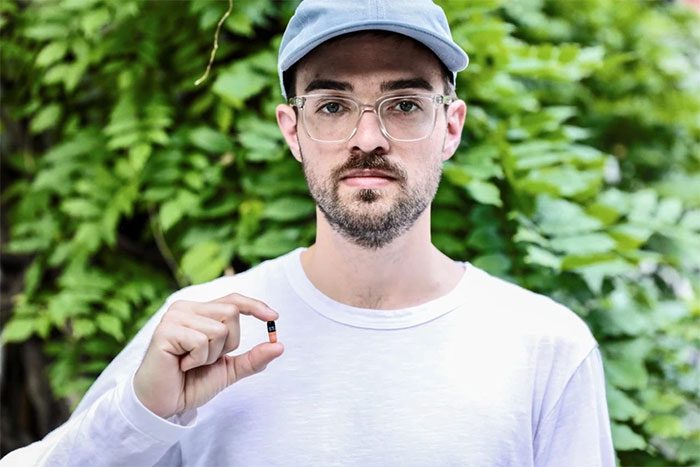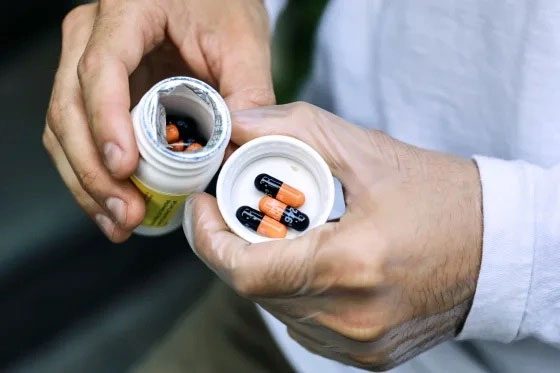As monkeypox becomes a global health emergency, the demand for the drug Tpoxx reaches a peak. However, numerous barriers make this medication difficult to access.
According to the New York Times, U.S. health officials have designated tecovirimat or TPOXX as a drug under “investigational research.” This means that the only remedy for monkeypox cannot be removed from the national strategic stockpile without going through a series of complex approval steps. Most doctors lack the time and resources to fill out the lengthy 27-page application or provide detailed patient information.
Patients Struggle to Access Treatment
Adam Thompson, a 38-year-old chef in Atlanta, experienced headaches and body aches on July 17. Two days later, he developed lesions on his face and rectum. The nurse handling his case was unsure how to treat him. Based on a friend’s experience, Thompson convinced her to prescribe hydrocortisone and gabapentin, medications typically used for nerve pain.
They said no. The nurse had heard of TPOXX for treating monkeypox but shared that it would take hours to fill out dozens of pages of paperwork to obtain the medication. The process stalled there, leaving Thompson uncertain about what help he would receive.
It wasn’t until July 31, nearly two weeks after falling ill, that the nurse contacted him just to inform him she had called the CDC and various health departments and doctors in other states but received no answers.
By then, it was too late for Thompson, regardless of whether he would receive the medication. His lesions had healed, the pain had subsided, and he was entering the recovery phase.

Luke Brown, 29, in New York, USA, holding a TPOXX pill. This patient endured severe pain caused by monkeypox for a week before accessing this medication. (Photo: Benjamin Ryan/NBC News).
Like Thompson, Luke Brown waited to receive medication like “waiting for rain in a drought.” On a sweltering Tuesday evening in New York City, Brown excitedly opened the newly delivered black and orange bottle of medication and took his first dose.
The 29-year-old contracted COVID-19 in early July. He endured the most severe pain of his life for a week before finally obtaining the treatment pill. For Brown, this was worth celebrating. To access it, he had to leverage numerous connections and express concerns that not every patient could do the same.
Dr. Stacy Lane, founder of a network of seven clinics for the LGBTQ community in Pennsylvania and Ohio, stated that many monkeypox patients came to her after being turned away by three to four doctors. These individuals could not navigate the federal regulations regarding TPOXX.
In early July, Dr. Lane witnessed a patient suffering severe eye damage due to monkeypox, which could lead to blindness. She tried to obtain TPOXX, but the Pennsylvania health department required the patient to see an eye doctor first. It was a Friday afternoon. Dr. Lane did not want the patient to wait in a crowded emergency room, so she sought out an ophthalmologist to follow the proper procedure.
In addition to the complex procedures, even patients question the safety and efficacy of the drug for humans. Dr. Lane noted that TPOXX has been proven safe for humans, which is why the FDA approved it.
Dr. Jay Varma, director of the Cornell Center for Pandemic Prevention and Response, stated: “If a drug has been FDA approved, any doctor can prescribe it off-label because the FDA does not regulate the practice of medicine.”
Many patients and doctors, including Dr. Lane, reported that TPOXX seemed to reduce skin lesions within 24 hours. No serious side effects have been reported.
With known and emerging evidence of the drug’s effectiveness for patients, and the urgency of the outbreak, experts argue there is no reason to limit access to it.

Black and orange pills are the “lifeline” for monkeypox patients right now. (Photo: Benjamin Ryan/NBC News).
Complex Regulations and Barriers
Approval of drugs that have only been tested on animals and not on humans is considered unethical. Therefore, even as the monkeypox outbreak intensifies, TPOXX is rarely used for patients. This stems from two issues: complex procedures and ethical considerations.
TPOXX is an FDA-approved antiviral medication for treating smallpox but has also been used to treat monkeypox due to the similarities between the two diseases. However, TPOXX was only approved for treating smallpox infections based on animal studies, not human trials. This is because smallpox was eradicated four decades ago.
Without human trials for monkeypox, the use of TPOXX can only be conducted by physicians on an internal review board and requires extensive legal paperwork. The number of specialists qualified to do this is very limited.
Researchers have had to rely on models from various similar viruses. In a study of 449 healthy individuals, data indicated that the drug is safe. Even so, it is still considered unethical to use it for a deadly pathogen like monkeypox.
Providing antiviral medication is not the issue. The manufacturer of TPOXX has over 1.7 million doses in the national strategic stockpile. However, it is only approved for smallpox patients in the U.S. This is bad news for Americans with monkeypox. They endure extreme physical pain or other severe consequences from the infection. They are desperately waiting for treatment.
A week ago, the U.S. Centers for Disease Control and Prevention (CDC) changed its regulations. Now, doctors can order the medication from the national strategic medical supply stockpile and begin treatment before completing the paperwork.
Dr. Abraar Karan, an infectious disease researcher at Stanford University, commented: “This allows clinicians to use the drug without encountering barriers.”



















































